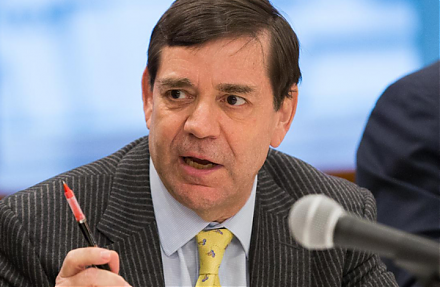

2019-12-28 09:36:00 Sat ET
treasury deficit debt employment inflation interest rate macrofinance fiscal stimulus economic growth fiscal budget public finance treasury bond treasury yield sovereign debt sovereign wealth fund tax cuts government expenditures
Global debt surges to $250 trillion in the fiscal year 2019. The International Institute of Finance analytic report shows that both China and the U.S. account for at least 60% of this sharp increase in global debt. In particular, global public debt increases from $65 trillion to $70 trillion in 2019, and this increase arises primarily from the recent surge in U.S. federal debt. This latter public debt accumulation results from the recent Trump tax cuts and infrastructure expenditures.
Meanwhile, the current low-interest-rate environment makes it extremely easy for public corporations and sovereign wealth funds to borrow more money worldwide. Total government debt represents more than 2.5 times annual real GDP in China. Low long-run government bond yields and high corporate debt mountains continue to be red alerts for the next recession in several economies such as Britain, France, Germany, Japan, Italy, and Spain. The monetary authority cannot sustainably fund fiscal deficits via new public bond issuance without an eventual increase in money supply growth or price inflation. When push comes to shove, an inflationary shock above the 2% target may tilt the central bank response toward a hawkish monetary policy emphasis on price stabilization.
If any of our AYA Analytica financial health memos (FHM), blog posts, ebooks, newsletters, and notifications etc, or any other form of online content curation, involves potential copyright concerns, please feel free to contact us at service@ayafintech.network so that we can remove relevant content in response to any such request within a reasonable time frame.
2018-01-06 07:32:00 Saturday ET

Subsequent to the Trump tax cuts for Christmas in December 2017, the one-year-old Trump presidency now aims to make progress on health care, infrastructure,
2019-03-13 12:35:00 Wednesday ET

Uber seeks an IPO in close competition with its rideshare rival Lyft and other tech firms such as Slack, Pinterest, and Palantir. Uber expects to complete o
2018-04-17 12:38:00 Tuesday ET

Value investment strategies make investors wiser like water with core fundamental factor analysis. Value investors tend to buy stocks below their intrinsic
2017-06-15 07:32:00 Thursday ET

President Donald Trump has discussed with the CEOs of large multinational corporations such as Apple, Microsoft, Google, and Amazon. This discussion include
2019-07-01 12:35:00 Monday ET

Apple releases the new iOS 13 smartphone features. These features include Dark Mode, Audio Share, Memoji, better privacy protection, smart photo collection,
2018-02-19 08:39:00 Monday ET

Snap cannot keep up with the Kardashians because its stock loses market value 7% or $1 billion after Kylie Jenner tweets about her decision to leave Snapcha